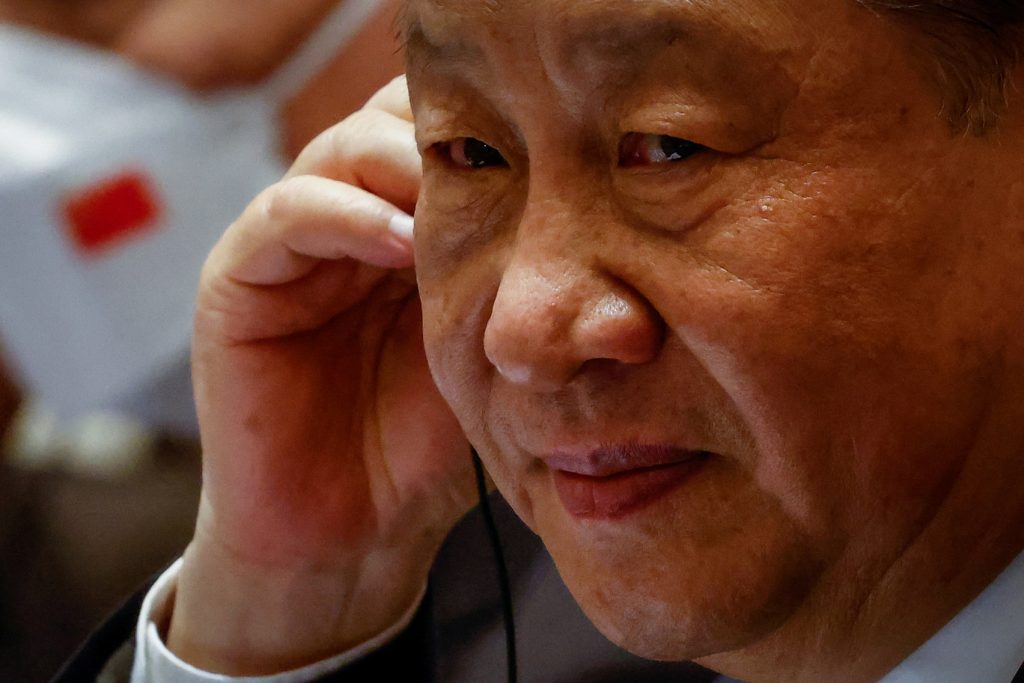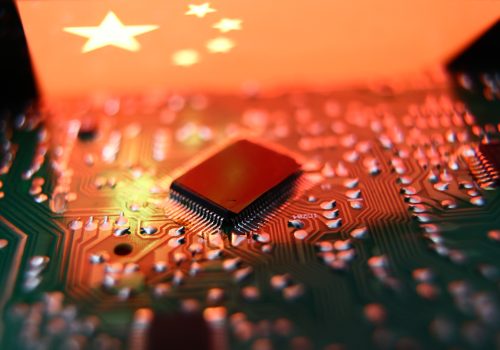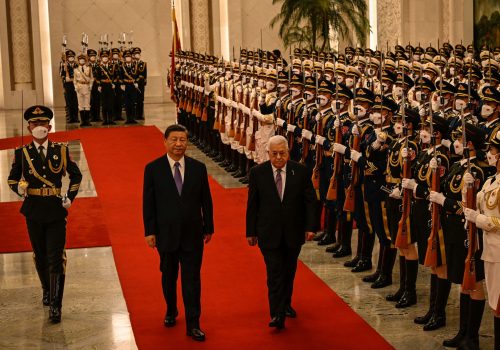In an apparent attempt to reset relations with Beijing, three US cabinet officials visited China between June and July, and now a fourth, US Secretary of Commerce Gina Raimondo, may visit later this month. But do not expect a cooling in US-China strategic competition. For its part, Beijing continues to insist that Washington’s “de-risking” push is a thinly veiled attempt to decouple and block China’s development. Chinese officials cite US President Joe Biden’s most recent executive order curbing technology investments as the latest evidence of this. Washington almost certainly doesn’t believe that these high-level visits will resolve fundamental disagreements in the bilateral relationship. Instead, it appears to be trying to reopen communication channels to prevent tensions from spiraling into a conflict—and, in all likelihood, to deliver an important message to Beijing about US strategy.
Soon after Secretary of State Antony Blinken’s and Treasury Secretary Janet Yellen’s trips to China, and during Special Presidential Envoy for Climate John Kerry’s visit there, Xinhua, Beijing’s official news agency, published a commentary series titled “Beware of the rhetorical trap of ‘de-risking.’” It was an unmistakable signal that tensions will endure despite the resumption in high-level talks. A major theme of the series was that de-risking is the same as decoupling. By making this argument, Beijing is attaching the same negative connotations to de-risking that are associated with decoupling, namely that Washington wants to contain China to preserve its hegemony, “de-Sinicize” supply chains, and disrupt China’s foreign technological exchanges. Beijing further stresses that de-risking hurts all countries—especially developing and emerging market economies, though China’s target audience with this series and other propaganda really appears to be global—to enlist the rest of the world to its side.
Washington should approach de-risking first and foremost as a strategy to mitigate longstanding national security threats emanating from Beijing.
De-risking seems to have struck a nerve in Beijing. This may be because the term speaks to measures Washington is implementing in consultation with allies and partners that seek to combat efforts by China to leverage foreign intellectual property (IP) and capital, among other schemes, to attain techno-economic dominance. China’s IP theft alone costs the United States between $225 billion and $600 billion annually, according to the Federal Bureau of Investigation. By engaging in these tactics, Beijing has created an uneven playing field that renders fair competition virtually impossible, which is a problem when US strategy toward China is one of strategic competition. It would seem that de-risking, whether intended or not, signals that strategic competition on its own is not possible because one side is not playing to win fairly.
If Raimondo’s trip to China this month does indeed go forward as planned, then the thrust of it will likely be that de-risking is possible. Raimondo last month commented that engagement with China in certain sectors, such as food, entertainment, and health and beauty products, poses no threat to US national security, unlike with semiconductors. In all likelihood, Raimondo will carry this message to Beijing, making the case that the United States does not seek to decouple from its third-largest export market and that there are certain sectors where it has no qualms promoting US business with China.
The risk in de-risking, however, is that it could lessen the bite of US measures to combat Beijing’s quest for techno-economic dominance if Washington allows compromise with allies, partners, and businesses to overtake its approach. De-risking seems to have been adopted as a term and a strategy to combat negative associations pushed by Beijing and reservations from US allies and other vested parties to decoupling from China—as the Group of Seven (G7) communiqué in May seems to confirm. Although consultation if not coordination with allies and partners is important, Washington should approach de-risking first and foremost as a strategy to mitigate longstanding national security threats emanating from Beijing. China possesses vast experience using licit and illicit means; obfuscation techniques, including hiding state ownership or control over seemingly private enterprises; and influence operations to achieve its goals. As such, Beijing will look to sniff out any and all loopholes. Washington should regularly ask itself how Beijing might circumvent prohibitions when formulating relevant measures.
Biden’s recent order on US outbound investments provides a useful example. The order is a first step toward tackling a pressing challenge, but its ultimate success in mitigating national security threats stemming from Beijing’s actions will require a more expansive approach to covered technologies. The same is true for the prohibitions and notifications required for technologies already covered in the order—semiconductors and microelectronics, quantum information technologies, and artificial intelligence.
Responding to the order, China claimed the United States was “using the cover of ‘risk reduction’ to carry out ‘decoupling and chain-breaking.’” Beijing’s reaction confirms that no matter what strategy Washington pursues and what it calls it, Chinese officials will insist on calling it de-coupling with the goal of hurting China. Beijing’s implacable tone may be aimed at trying to compel a further narrowing in the scope of US measures. Its response to the order, however, also tracks with a narrative that Beijing has broadcasted widely: that Washington is at fault for the world’s problems. Beijing pairs this narrative with the suggestion that China can lead the world to a better future. Both ideas are driving forces behind Chinese leader Xi Jinping’s Global Development Initiative and Global Security Initiative. These initiatives and the narratives behind them suggest that Beijing sees itself in a long-term struggle with Washington. From Beijing’s perspective, a true reset in US-China ties will likely only happen if Washington acquiesces to its ambitions and demands. Therefore, US officials should not expect to convince Chinese leaders that Washington is not in fact trying to decouple from China.
It is encouraging that Washington and its partners appear to have coalesced around the term “de-risking.” The goal now should be to ensure that subsequent measures actually do just that.
Gabriel Alvarado is a nonresident senior fellow in the Atlantic Council’s Global China Hub.
Further reading
Thu, Aug 10, 2023
A new White House order is taking aim at investment in Chinese tech. How will it actually work?
New Atlanticist By Sarah Bauerle Danzman, Emily Weinstein
President Biden has signed an executive order restricting certain outbound investment in an effort to address national security threats that China may pose to the United States.
Tue, Jul 25, 2023
Is ‘friendshoring’ really working?
New Atlanticist By
The Biden administration has identified around 2,400 critical goods and materials that fall under its efforts to move supply chains out of China. Check out what the data reveal so far.
Wed, Jun 21, 2023
How Beijing’s newest global initiatives seek to remake the world order
Issue Brief By Michael Schuman, Jonathan Fulton, Tuvia Gering
Recommendations on how US policymakers and European and Indo-Pacific partners can better understand China’s latest development and security initiatives to meet the rising competition.
Image: Chinese President Xi Jinping puts on an earpiece during a meeting with Turkmenistan President Serdar Berdimuhamedov on the sidelines of the China-Central Asia Summit in Xi'an, Shaanxi province, China May 18, 2023 Mark Cristino/Pool via REUTERS



